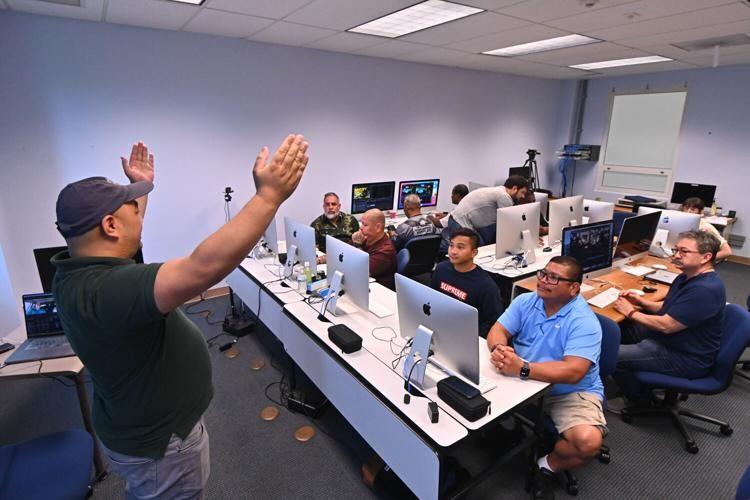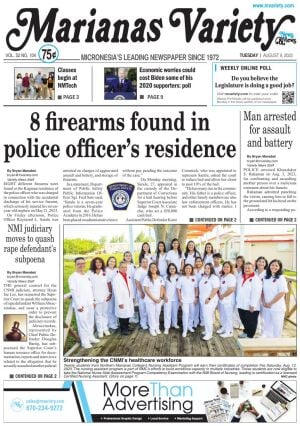HAGÅTÑA (The Guam Daily Post) — A three-day workshop kicked off Monday at the University of Guam in Mangilao with the goal of helping military veterans arm themselves with the tools and skills to create documentary-quality videos that will help them tell their stories.
The workshop, "Voices of Veterans: Masterclass in Visual Storytelling," was conducted by two veterans who served in Iraq and are familiar with the challenges Guam's service members face with the Department of Veterans Affairs and receiving medical care.
"It is hard for veterans on Guam to make their voices heard because the VA does not recognize the need," Michael Flores, who led the workshop, told The Guam Daily Post. "The official numbers of veterans on island does not match up with what local veterans know there is – the VA thinks there are 3,000 veterans, while local veteran groups estimate there is about 24,000."
According to Flores, it's difficult for local veterans to be a priority for the VA due to Guam's distance and small size.
"VA Manila is much more well resourced than VA Guam," he said. "There are about 5,386 veterans in Manila, and (they) receive about $7.8 million dollars in support, with 165 staff. Meanwhile, VA Guam has three doctors – one doctor remote – and we don't know how much money VA Hawaii sends to Guam."
With this in mind, the workshop focused on teaching veterans how to identify meaningful stories for video creation, explore common and effective storytelling structures and practice video shooting techniques and framing shots, as well as how to edit their videos to create impactful narratives.
"The workshop gives our participants a format and structure for their documentaries," Flores said. "Every person has a story to tell, but they aren't sure how to do it. We give them the basic format of most stories, and ask them to fit their story into it to start off. When it comes to putting the camera on themselves, I share my own experience of putting the camera on me for my first major documentary, 'Philippine Father.' I hated being on camera, but I became used to it, and found that it was helpful to talk about my feelings and thoughts with the audience. I say to them, 'give yourself enough time and you'll eventually feel OK in front of the camera.'"
Documentary project
The veterans who participated in the workshop will create videos that will become part of a larger documentary project depicting the lives of veterans on Guam, Flores said.
"The larger documentary, with my friend and Ph.D. candidate Nate Tilton, is exploring how veterans on Guam thrive despite not having enough VA support," Flores said. "The veteran group GY671, for example, holds 'battle buddy' talks so people have support. We think that these sorts of settings can be a model for how other veteran groups can help themselves when the VA forgets about them."
The workshop is hosted by the Veteran Independent Research Organization, a group of military veterans who entered fields in academia, medicine and journalism following their military service. Their mission is to highlight the problems with Veterans Affairs and study how veterans can thrive with or without the VA's assistance, according to Flores.

















